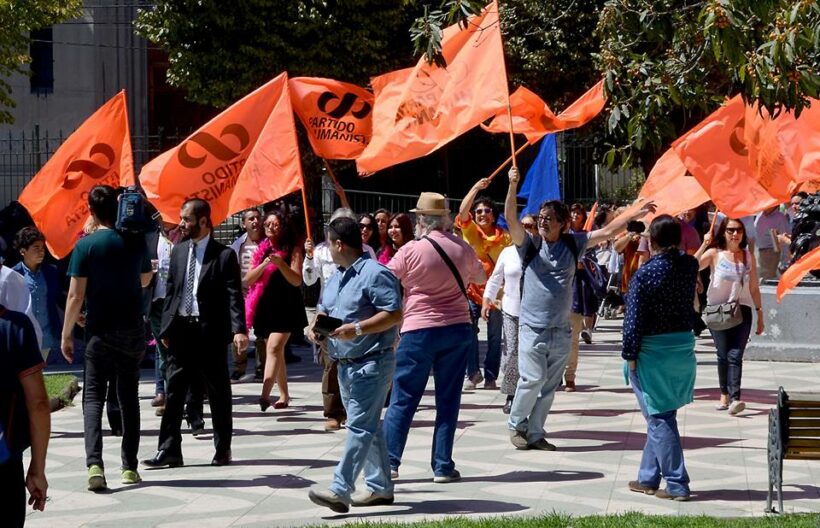Faced with the threat of eventual ratification of the Trans-Pacific Partnership Treaty, better known as TPP-11, the Humanist Party demands that the government, and in particular President Boric, fulfil its promise to get this project out of the Senate.
Firstly, its eventual approval is an attack on Chile’s sovereignty, handing over rights to large companies and transnationals, to the detriment of all the country’s inhabitants, indigenous peoples, farming communities and workers.
Secondly, the TPP-11 has been processed behind the backs of the citizens and without consultation with indigenous peoples, in violation of ILO Convention No. 169 on Indigenous and Tribal Peoples. At the same time, the approval of the TPP prevents the state from implementing laws, measures and actions in favour of the population and/or the environment.
Thirdly, the TPP-11 would give investors unprecedented rights, including the right to sue states before international tribunals – primarily ICSID, a World Bank institution – if their current or future profits are affected by government action. However, the state cannot sue companies.
- In specific terms, ratification of the treaty would have countless negative consequences for the country, including the following:
- – Medicines will prolong their royalty periods (monopoly of the laboratories), consequently, their high prices; any sanitary registration of generics will be sued in court by the pharmaceutical companies.
- – Elimination of the rights of farming communities and peasants over seeds, in favour of the Monsanto Act.
- – The TPP-11 will make viable the production of GM crops for consumption, which are currently banned; it should be noted that only the production of seeds is currently allowed.
- – The use of pesticides and pesticides that can currently be banned on the basis of the precautionary principle, i.e., when their consequences are not known, will be liberalised, leaving only scientific proof of their negative effects as grounds for banning them.
- – The capacity to strengthen state enterprises is minimised by restricting investments in public enterprises. The state will not be able to implement policies to favour the production of new products with greater added value, nor will it be able to impose taxes such as royalties on exports that would make it possible to change the productive matrix and/or raise funds for social programmes.
- – The big demands made by the people in the social revolt (education, health, pensions, water, fishing, natural resources, etc.) will become impossible, because big business will be able to sue the state, arguing that they constitute expropriation.
- – The TPP-11 does not recognise treaties previously signed by Chile on human, labour, environmental and other rights, allowing big businesses to sue the state if they are harmed by the fulfillment of these agreements. Fundamental labour rights are restricted to a minimum, leaving out rights such as retirement, strike, rest and others, putting pressure on the state to minimise them.
- – The TPP-11 will not even produce growth, as it will not lower tariffs in countries that are the destination of our exports, except for products that were not fully exempted, such as forestry and fisheries, favouring only the richest families in the country, with investments in these sectors.
Consequently, we recognise that the approval of the TPP-11 condemns Chile to perpetuate itself as an exploiter of nature, allowing the plundering of common goods, in exchange for poor quality, precarious and informal jobs, deepening social inequality and the destruction of ecosystems that allow the perpetuation of life.
We, therefore, endorse the statement of the many social organisations that have rejected and denounced the unpopular treaty, showing in detail the negative effects that its eventual approval would have. Effects that the concertacionist policies, today included in the government cabinet, try to ignore, since its approval would benefit the world of business and financial capital, known allies of their governments for 30 years.
Provisional National Coordination Team






